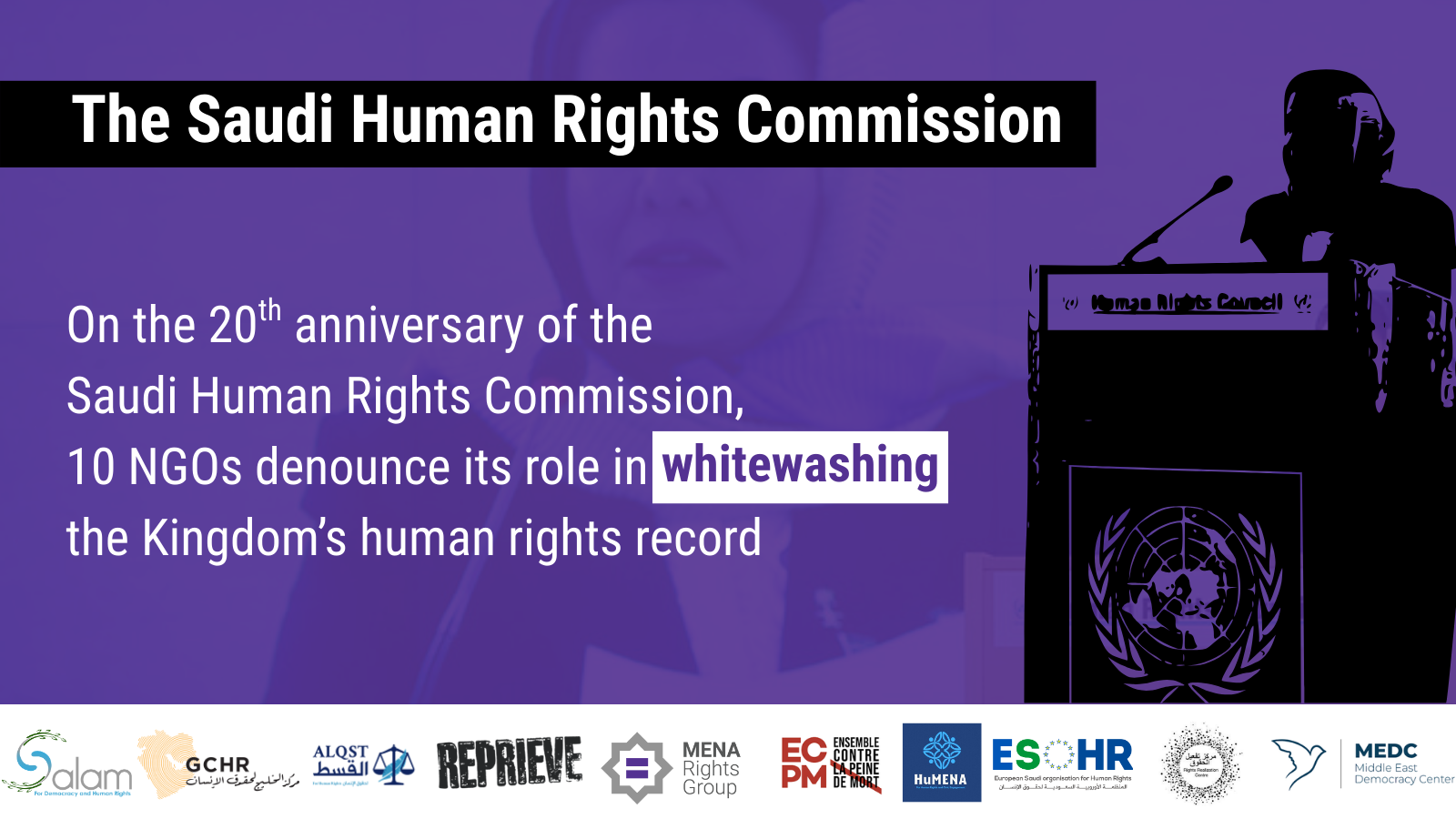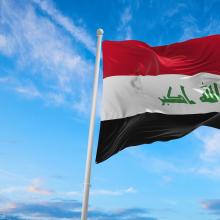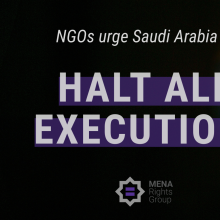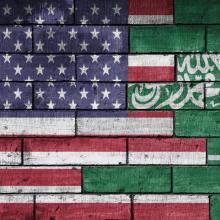September 12, 2025

Geneva, September 12, 2025 – On the 20th anniversary of the establishment of the Saudi Human Rights Commission (SHRC), the undersigned organisations draw attention to the persistent and systemic failure of this institution to function as an independent national human rights institution (NHRI). The SHRC continues to engage in covering up for ongoing violations rather than fulfilling its stated mandate to promote and protect human rights.
A new report by MENA Rights Group, ALQST for Human Rights and the European Saudi Organisation for Human Rights (ESOHR), titled “The Saudi Human Rights Commission – 20 years of whitewashing the Kingdom’s human rights record”, found new evidence that the SHRC has failed to investigate violations, provide remedies, or publish credible assessments of the human rights situation. Instead, the SHRC’s activities consist of praising government initiatives and legislation, while remaining silent on executions and widespread repression of dissenting voices.
Established by Royal Decree in 2005, the SHRC presents itself as an independent organisation with full autonomy that reports to the King and holds the government to account. On paper, the SHRC is tasked with various responsibilities which include addressing human rights complaints, engaging in legislative work, and monitoring detention facilities. In practice, it has failed to fulfill its stated role and mandate. Families of prisoners, such as relatives of prominent activists Manahel al-Otaibi and Mohammad al-Qahtani, have repeatedly found that the SHRC blocked their attempts to raise concerns, offering false assurances, or ignoring their requests outright. The SHRC has never published credible reports on detention conditions, nor has it effectively intervened in cases of human rights violations.
The SHRC has notably been silent on pressing matters such as the sharp rise in executions, with at least 272 executions carried out between January and August 2025, many targeting foreign nationals (57% according to last figures) and members of the Shi’a minority. Despite international alarm, including repeated interventions by UN experts, the SHRC has instead promoted government-run training programs and awareness campaigns while avoiding mention of imminent executions, including of juveniles.
It has equally completely failed to address cases of reprisals against human rights defenders, including through arbitrary detention, sweeping travel bans and harassment. Despite a limited number of prisoner releases in 2025, women’s rights activists such as Manahel al-Otaibi remain imprisoned for peacefully expressing opinions online, while others like Loujain al-Hathloul and her family continue to face arbitrary travel bans.
In 2024, the SHRC presided the Saudi governmental delegation during its reviews by the UN Human Rights Council in the context of its fourth Universal Periodic Review (UPR), as well as during the reviews by the Committee on the Elimination of Discrimination Against Women (CEDAW) and the Committee on the Elimination of Racial Discrimination (CERD). Acting as the authorities’ mouthpiece, the SHRC notably rejected key UPR recommendations concerning the abolition of the death penalty, protection of human rights defenders, and ratification of core international treaties. During the review by the CEDAW, it celebrated supposed progress in women’s rights while ignoring ongoing imprisonment and reprisals against women activists. Finally, before the CERD, it denied systemic discrimination against Shi’a citizens, despite overwhelming evidence to the contrary.
By acting as the official spokesperson of the government, the SHRC systematically violates the Paris Principles, international standards adopted by the UN General Assembly which guarantee the independence and impartiality of NHRIs. The SHRC has never sought accreditation from the Global Alliance of National Human Rights Institutions (GANHRI), the body that assesses NHRI’s compliance with these principles. This lack of accreditation exempts the Commission from international oversight, making it prone to align with state interests.
Despite this demonstrated lack of independence, the SHRC continues to benefit from international partnerships with the UN, EU, and foreign governments. By signing memoranda of understanding and hosting joint training programs with UN agencies, it projects an image of credibility while avoiding meaningful reforms. Particularly concerning is the cooperation with the Office of the High Commissioner for Human Rights (OHCHR) and United Nations High Commissioner for Refugees (UNHCR), whose technical assistance risks being instrumentalised. Likewise, EU-Saudi human rights dialogues led by the SHRC have concluded without addressing systemic violations, and instead, provided diplomatic cover to the authorities. Such engagement risks reinforcing the SHRC’s legitimacy in the absence of compliance with the Paris Principles, undermining civil society efforts to hold Saudi authorities accountable.
Instead, efforts must focus on supporting victims and survivors, empowering civil society, and pressing for the creation of a genuinely independent institution that operates in full compliance with the Paris Principles. Only through structural reform and genuine accountability can Saudi Arabia begin to address its longstanding record of repression and move towards protecting the fundamental rights of all.
Signatories:
MENA Rights Group
ALQST for Human Rights
European Saudi Organization for Human Rights (ESOHR)
ECPM (Together against the death penalty)
Gulf Centre for Human Rights (GCHR)
HuMENA for Human Rights and Civic Engagement
Middle East Democracy Center (MEDC)
SALAM for Democracy and Human Rights (SALAM DHR)
Reprieve
Rights Realization Centre (RRC) / مركز تفعيل الحقوق






